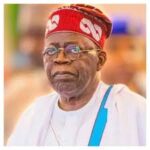In a significant development, the U.S. Department of Justice (DOJ) has reportedly issued a warning to Elon Musk’s America PAC regarding the legality of its latest campaign strategy: offering $1 million daily giveaways to registered voters. The PAC, which is associated with the billionaire entrepreneur, launched this initiative with the aim of increasing political engagement among U.S. citizens. However, federal authorities have raised concerns that the daily cash giveaways may violate election laws intended to prevent undue influence on voters.
America PAC, reportedly backed by Musk, has recently implemented a program to give away $1 million each day to selected registered voters in the lead-up to the 2024 elections. This campaign, framed as a way to increase voter participation and engagement in the political process, has attracted widespread media attention for its unprecedented scale and potential impact on voter behavior.
America PAC has stated that the giveaways are intended solely as a voter engagement strategy and are not designed to sway or incentivize voters to support any particular party, candidate, or policy. Instead, it frames the program as an initiative to foster a more active electorate by encouraging citizens to participate in the democratic process.
According to DOJ officials, the campaign’s financial incentives may cross ethical and legal lines, potentially constituting a violation of federal election laws that regulate campaign contributions, expenditures, and inducements to vote. Federal law strictly prohibits any form of payment or benefit aimed at influencing voters or inducing voting in specific ways. While America PAC has stated that recipients of the daily giveaways are not required to vote for any particular candidate, the DOJ remains concerned that the incentive may indirectly influence voting behavior, particularly if it targets registered voters or potential voters who might be financially motivated by the giveaway.
The DOJ’s warning highlights the fine line between lawful voter engagement initiatives and potentially coercive tactics that could affect electoral outcomes. The key question under examination is whether such monetary giveaways, even if they lack explicit instructions on how to vote, could be perceived as a form of inducement or pressure to participate in the electoral process.
Legal analysts have weighed in on the situation, noting that federal election laws are intentionally broad when it comes to campaign finance and voter influence, to prevent attempts at swaying voters through direct or indirect financial incentives. This case presents a gray area, as it is unusual for a PAC or individual to offer such substantial sums daily with the aim of bolstering voter turnout without clear partisan messaging or requirements.
Some legal experts argue that while the giveaway might be seen as innovative, it could set a concerning precedent that opens the door to further monetary enticements aimed at voters. Critics warn that such tactics, if left unchecked, could lead to a scenario where candidates, PACs, or other political entities engage in escalating financial competitions to incentivize voting behavior, which could undermine the principle of free and fair elections.
On the other hand, some proponents of the campaign see it as an attempt to modernize voter engagement in a way that captures public attention. Given the influence that financial incentives can have, especially on lower-income demographics, supporters argue that such campaigns could help overcome voter apathy and potentially increase voter turnout among traditionally underrepresented groups.
Neither Elon Musk nor America PAC has yet released a formal statement addressing the DOJ’s concerns. However, sources close to the organization suggest that America PAC remains confident that its program falls within legal boundaries, as it does not impose any conditions regarding voter choice or political affiliation.
As Musk is known for his unconventional approaches and has, in recent years, shown increasing involvement in political and social issues, the PAC’s initiative aligns with his philosophy of challenging traditional norms. America PAC is reportedly reviewing its options in light of the DOJ’s warning and may consider either modifying the program’s structure or seeking legal clarification to continue the giveaways in compliance with federal law.
The DOJ’s intervention underscores the complex nature of campaign finance regulations in an era where unconventional strategies are reshaping political engagement. The debate around America PAC’s daily giveaways taps into larger questions about the ethics and legality of financial incentives within democratic processes.
The current legal scrutiny could potentially lead to new guidelines or legislative amendments that define the limits of financial engagement in voting initiatives. This case may set an influential precedent, potentially prompting lawmakers to revisit and refine election laws to prevent future instances where substantial financial incentives could be perceived as a tool for voter manipulation or coercion.
As the 2024 elections approach, the outcome of this case will be watched closely by both political strategists and the general public. For America PAC, the DOJ’s warning signals a potential need to adapt its voter engagement strategy or face possible legal challenges. If the DOJ proceeds with further investigations or formal actions, it could result in additional scrutiny of other organizations that seek to influence the electoral landscape through financial means.
Ultimately, the situation brings to light the evolving landscape of political engagement in the digital age, where unconventional tactics continue to test the boundaries of legal and ethical campaigning.









